Greece is a longstanding favourite for a family holiday, but most people head for the Greek islands. If you’re willing to abandon the herd, you could do worse than choose the Greek Peloponnese for your next trip. This southern peninsula has all the things that make the islands popular, as well as a fair bit more besides. And you won’t be tripping over other British tourists. Here are some reasons to get booking.
Tolon – safe and sand
Tolon in the northern Peloponnese makes an excellent base, whether you’re exploring the region or just lazing in the sun. This huge bay – located between the thumb and forefinger of the hand-shaped peninsula – has a gently sloping beach that’s safe for toddlers and sand that’s perfect for castle-building.
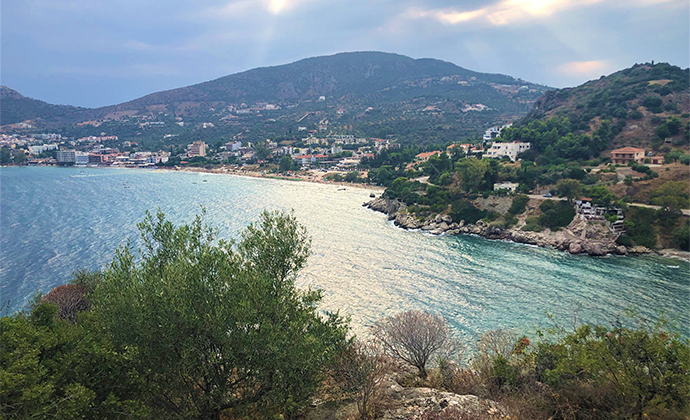
There are also plenty of opportunities for older kids to get active, with windsurfs and kayaks to hire, and even floating bouncy castles in one area of the shoreline. The town has a good selection of shops and tavernas, and both hotels and self-catering options (including Stella Apartments, which have terraces right on the beach).
Food to tempt the fussiest
This is Greece, so you can bank on good food – Greek salads with creamy feta cheese and the reddest of tomatoes, seafood served on the day it was caught, succulent skewered kebabs.
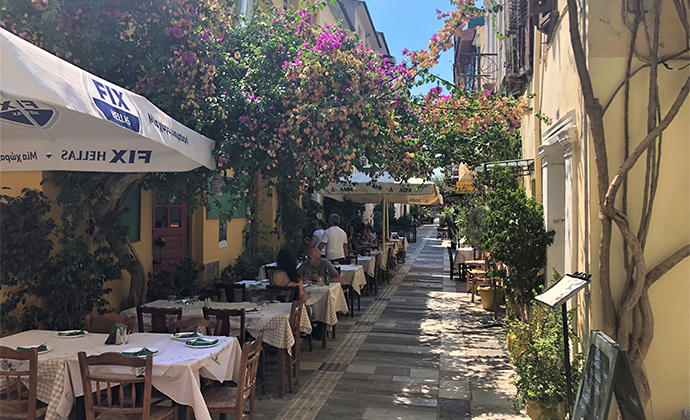
The region’s Kalamata olives are famous around the world, while their citrus groves deliver the best orange juice you’ll ever taste.
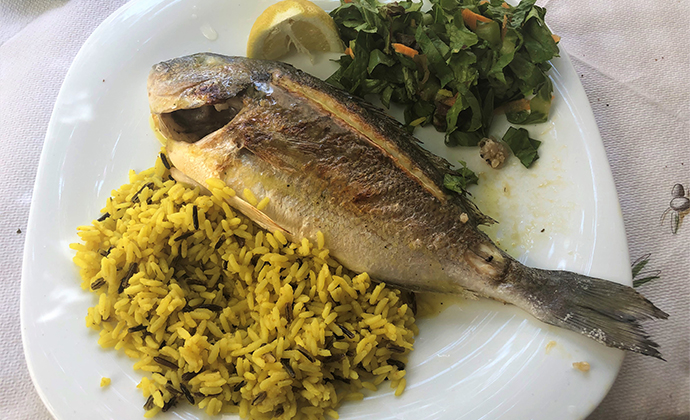
Want some recommendations in Tolon? Well, the beachfront Taverna Romvi offers a Tuesday evening kleftiko – the lamb just melting off the bone – while the nearby To Stéki, run by the amiable Vangelis, delivers a mean plate of spicy meatballs.
Step back in time
Reminders of Ancient Greece are all over the Peloponnese – you’ll be stubbing your toes on the remains of temples that date back 2,500 years. And, unlike elsewhere in Greece, you’ll often have the archaeology to yourself.
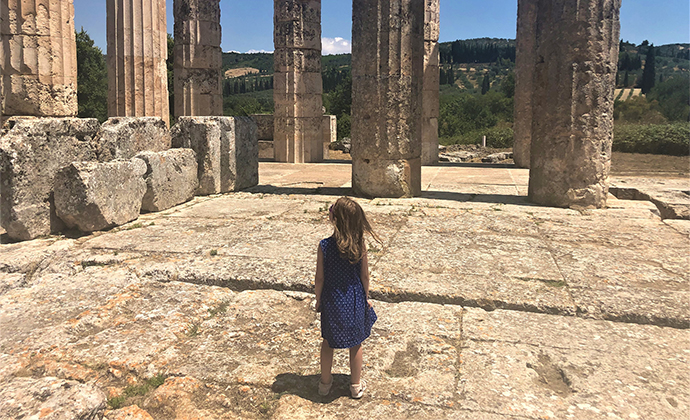
At Assini, you can climb to fortifications mentioned by Homer, and look over the place where Agamemnon launched his ships on Troy. At Epidavros’s theatre, you can sit on the same stone benches that would have supported the bums of Greeks as far back as the 4th century BC.
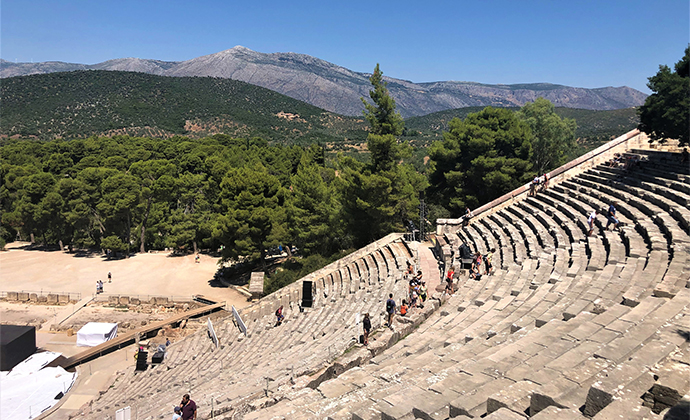
Perhaps most exciting of all is the amphitheatre at Nemea. This stadium was uncovered in the 1970s by an American archaeologist called Professor Stephen Miller, and was one of the four sites where the Ancient Games were held (the Olympics being another). You can walk through the very tunnel the athletes took to the stadium – complete with graffiti that some of them carved in the stone – and run on the very same track.
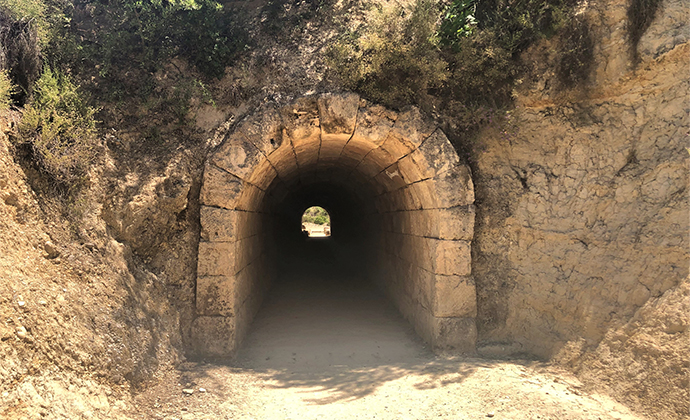
Indeed, every four years the Modern Nemean Games are held here. Anyone can enter – races are run in categories, with past competitors ranging in age from 6 to 96 years old – and it’s free to take part.
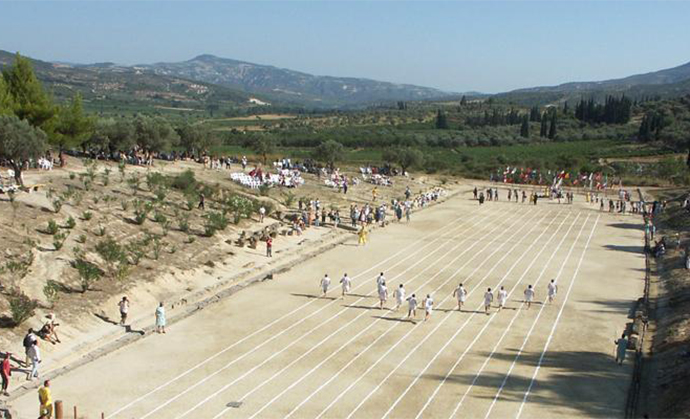
But the organisers aim at authenticity and, while you won’t be expected to run in the nude like the Ancient Greeks, you will need to compete bare-footed and in a Greek toga (called a chiton). The next one takes place 26–28 June 2020 – if you’re brave enough, get registering!
Nafplion – a tale of two cities
The port of Nafplion has a rich history – this was the first capital of independent Greece (before Athens) after the revolution against Ottoman rule in the 1820s.
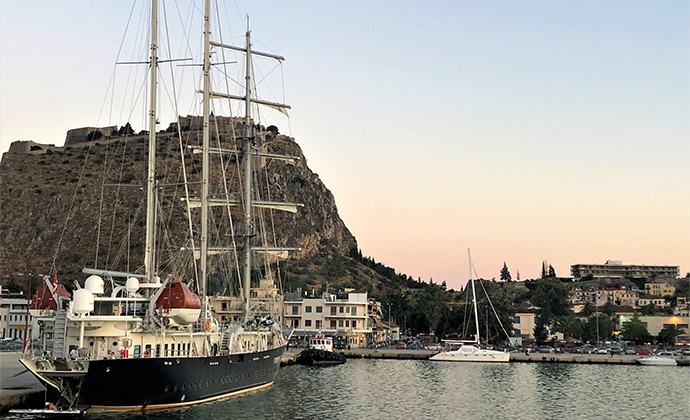
A 17th-century fortress lords above the town from a hilltop behind – you can climb its 999 steps if you’re feeling fit – and there’s also a smaller castle on an island in the harbour where executions took place in the past. But most of all this is a place for parents to enjoy a stroll and the kids to enjoy an ice cream.
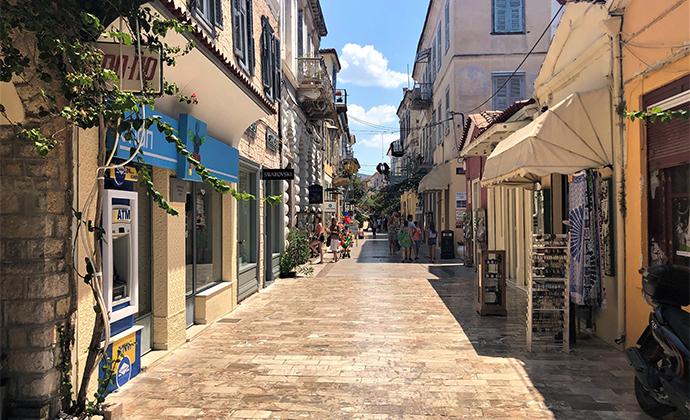
By day, the sun reflects off the colourful Venetian-style residences and people browse the little shops selling hand-made sandals or strings of komboloi (traditional Greek worry beads). By night, Nafplion feels very different – its streets beautifully illuminated, and the neo-classical main square alive with people having a drink at the pavement bars.
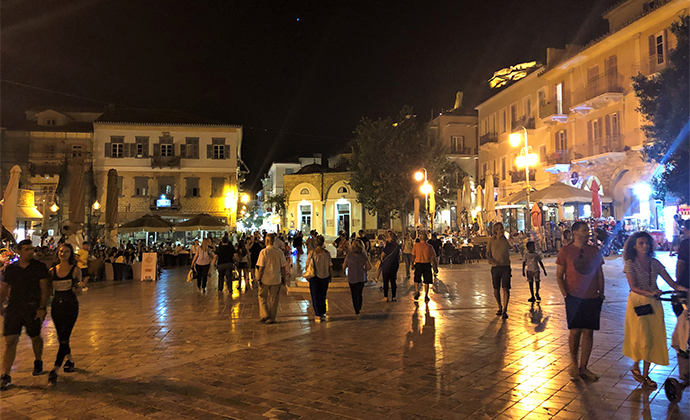
If you’re staying in Tolon, you can take an evening ferry trip to Nafplion – the ‘Nafplion by Night tour’, operated by Pegasus Cruises is only €10/adult and €5/child return, and gives you time to have a meal and soak up the atmosphere.
How to do it
Sunvil has long specialised in tours to the Greek Peloponnese, and can organise all the activities suggested above (as well as much more). Departing during school summer holidays (July and August 2020), a stay at the Stella Apartments costs from £894 pp (7 nights) or £946 pp (14 nights), based on four sharing (two adults and two children). The package includes self-catering accommodation, return flights, transfers, use of bicycles and 2 hours of motorboat hire.
For more on the joys of family travel, check out our new anthology:
